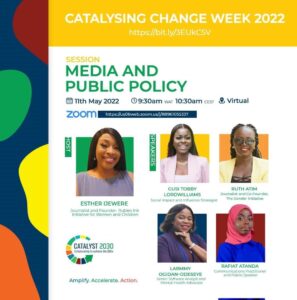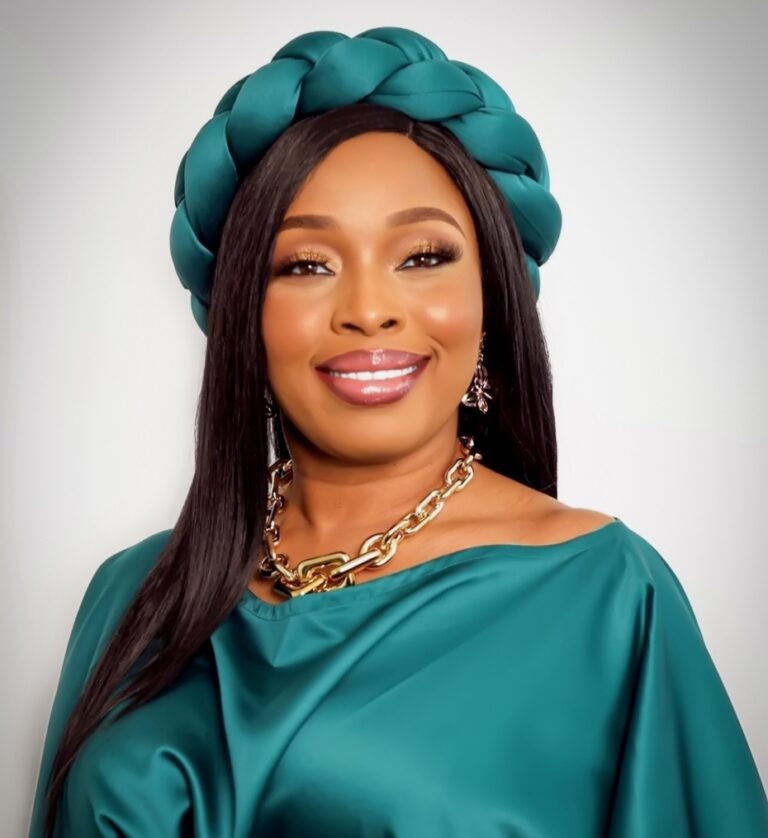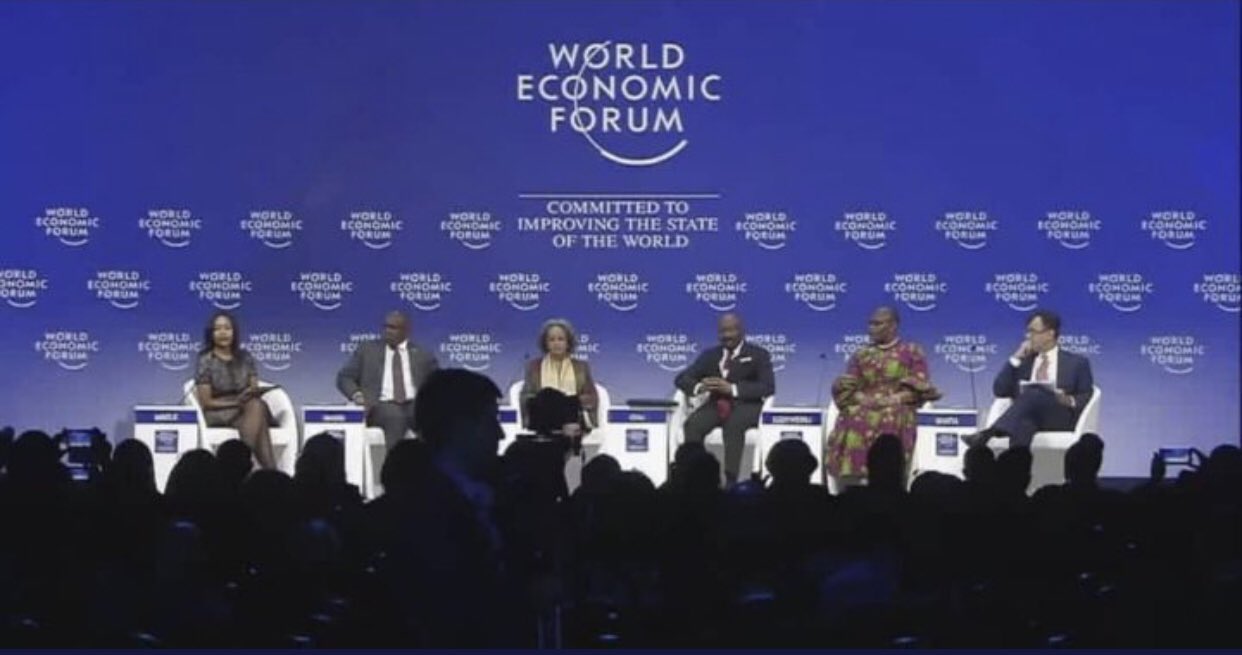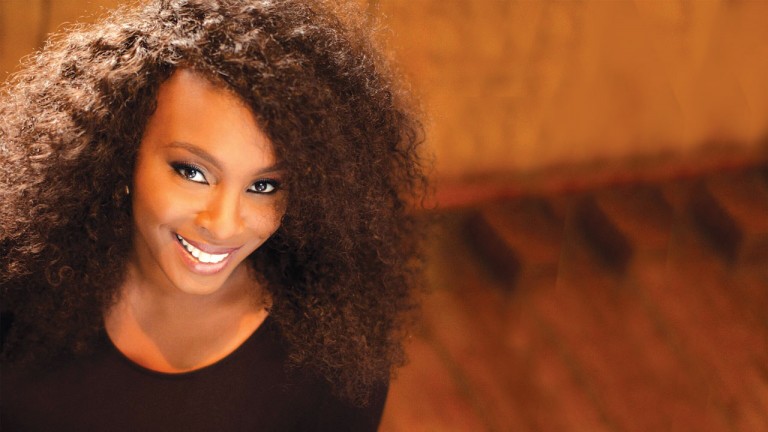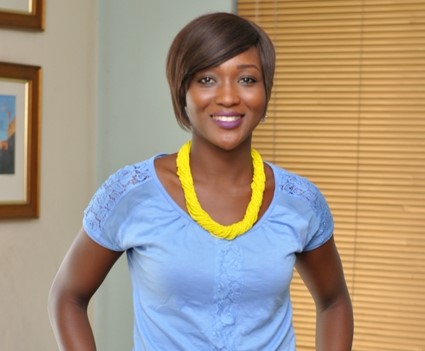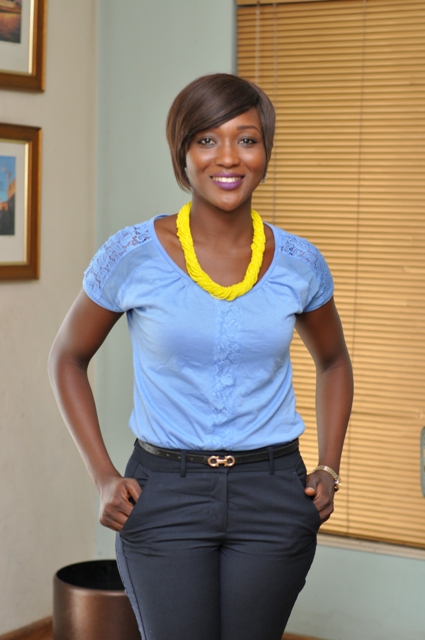A facilitator/management trainer, she is also a consultant on non-profit management and strategy. A Sustainability Expert and Speaker, she is the founding curator, Global Shapers Forum Nigeria. Owing to her experiences, Osayi sits on the board of several organisations that includes Immediate past Chairperson Women in Management, Business and Public Service (WIMBIZ), House of Tara, Chairperson Zapphire Events, Culinary Academy and Global Dignity, an affiliation of the World Economic Forum in Norway impacting the lives of over 100,000 students over the last five years. In this interview with TOBI AWODIPE, she talks about juggling several responsibilities, why women are not doing well in business and her plans for the future.
Tell us about yourself briefly
I am Osayi Alile, CEO of ACT Foundation, a subsidiary in partnership with Access Bank. I have been doing this for 18 months and before taking up this position, I was CEO at FATE Foundation for nine years. Before joining FATE, I worked at Junior Achievement where I was the Vice-President of programmes. I have always been in this sector: non-profit community development and it is something I have enjoyed doing over the last few years.
I had my primary school education in Lagos before moving on to FGGC, Warri for my secondary education. For university education, I have a degree in Sociology from the University of Lagos and a master in Public Administration from Rutgers University, New Jersey, USA. Notwithstanding, I have done several courses and executive programmes at Yale Univeristy, Harvard Business School, Stanford and so on. I believe it is necessary for everyone to try as much as possible to always continually take themselves to the next level and that is what I have been trying to do in the last few years.
Do you think that is where you are now? The next level?
Life is a journey and you never know where you are going to but I just feel I am practically just starting my life; it’s still at the beginning stages and we will see how it goes from here.
How has your journey been like, getting several educational qualifications, sitting on the board of so many companies and industries?
It has been very eventful and interesting and I have learnt a lot, faced a lot of challenges, and had some successes and quite a few failures as well along the way. I have never told myself, “This is exactly where I want to go,” but when the environment throws different things to you, you learn to cope. Gathering knowledge and education I believe is necessary. I was once asked at a conference if it was necessary to keep getting and education and learning and my answer is: learning is continuous, it doesn’t stop. No matter how much you think you know, there is always something new to learn. I have been CEO of a company for nine years, but this is a new challenge and there are new things to learn here. Education and knowledge is constant.
You mentioned challenges you face; how do you handle them?
I always take a step back. In the past, when things happen, I rush around, trying to find solutions, but now I take a step back and think things through. Challenges would come and you have to be ready because things cannot go smoothly forever. In my mind, I know they will come, I might not know which challenge or where it is coming from but my mind is prepared that if it does happen, how will I manage it? You also need strong people around you and I always employ people that I think are smarter than me, a bit more knowledgeable than I am so that when challenges come, you can have the right people around you to get ideas from.
Also, it’s always good to have a strong board that you can go back to and mentors that can help so you can run to them for help. Even on boards I sit on, we are always available to help because we are not in the grind constantly and they can come to us for another perspective.
You talked about mentoring and truthfully, a lot of women going into entrepreneurship have mentioned the difficulty in getting good mentors. How can female entrepreneurs access good mentors and how can it help them grow?
Mentoring is key and I cannot talk about my success today without talking about all the wonderful people that have walked with me and held my hand. Of course, the major foundation for me is God but there have to be people around you that guide you along the way. I wouldn’t be where I am today if I didn’t have people guiding me. With FATE Foundation, I had Mr. Fola Adeola and he was such a great mentor to me and he still is. So many things happened in my eight year journey with him, so many mistakes I could have made but he guided me and pushed me to do things I never thought I would be able to do. It is essential, especially if you want to get into leadership position, to have someone you can speak to. You need to have a critic and a coach at all times. A critic would tell you what you’re doing wrong and your mentor can be both to you. However, you must be mature enough to accept correction and work with them and plot the direction you want to go.
After your exit from FATE Foundation, is it still serving the purpose for which it was set up?
Yes. I am still close to FATE and still relate very well with the founder. The present CEO is someone I talk to constantly. I believe it is one organization that has pushed itself out there, constantly working with entrepreneurs. This has been my field in the last few years, building businesses, working with entrepreneurs and helping businesses to be sustainable long term.
Tell us about ACT Foundation and the purpose it is serving?
We just started recently and it is my new baby. We are working in four major areas of health, environment, leadership and entrepreneurship. We are trying to work with communities, give them grants and see how they can improve the communities they’re living in. in a few months, we are hoping to expand and push it out more, work with other NGOs and other community based outfits and see how we can improve communities based on those four pillars.
You’re a facilitator and management trainer as well, what does this aspect entail?
It is not my full time job but something I love to do. In a week, I teach at one or two places, schools, conferences, seminars and so on. I would describe it as a calling because I believe there is so much to share with people and also an avenue to learn. There is no way you can sit in a room with thirty people and you’re speaking to them about something and not get something in return.
How do you joggle all your responsibilities: sitting on several boards, being a full time CEO, teaching and mentoring?
(Laughing) I am a very organized person and like to plan everything. Also, I have a passion for small businesses and once you have a passion that you feel obligated to, it becomes easier, doesn’t feel like work. I sit on several boards and enjoy seeing them grow, I enjoy seeing them enjoy what they do and this doesn’t feel challenging. I will put it down to organization, preparation and time management. Relationships are key as well; I can’t work with you or sit on your board if I don’t have any form of relationship with you. We don’t necessarily have to be best friends but we need to have some form of understanding, the same values system, be on the same page to some extent. It is necessary and easier because when you’re saying something or trying to make changes, they know it is coming from a good place.
A lot of women are going into businesses now but several fold up quickly. What do you think they can do differently to change this?
I believe there are several factors responsible for this. I have been involved with small businesses and enterprise for 14 years now and I am happy to say many women are going into businesses and from my observation over time; women tend to enter businesses from passion or a hobby. Most don’t realize that though it is a small business, the foundation has to be in place from the onset. Just like building a house, you have to ensure that the foundation is done properly. Even if it started out as a passion, once it becomes a business, you have to do things properly. A lot of women don’t know how to handle the financial part of their business, taking it day by day. There are no defined structures or plans in place and it is difficult for an investor or bank to take this kind of business serious.
Also, women find it hard taking risks and so you see a business a man and woman started at the same time with the man’s own doing better after a while. However, I wont say it is all bad because things are changing steadily. You sit in a room with ten women, seven are running businesses and at least four are doing exceptionally well with strong foundations in place. Any woman that wants to venture into business must realize that every business is a risk but must ensure the foundations are in place from the beginning.
The ratio of women to men taking advantage of available opportunities like loans, grants and the likes is still very lopsided and poor. In your experience, why is it so?
It still boils down to the risk factor mostly when it comes to loans. Out of 10 people looking for loans or grants, eight would be men with two women. Women are sadly averse to taking risks and it is sadly being passed from generation to generation. Women can take loan from friends and family members but when it comes to structured loans, they are absent.
Regarding trainings, sometimes it is lack of information; women are not following and reading what they should be reading. When I was chair at WIMBIZ, we had so many opportunities available but we had to consciously make noise about them to get the women to follow through. Even with the YouWin programme then, I can tell you confidently that 85% of the people that applied were men and the government was puzzled. This was free money, there was no repayment needed and still women didn’t apply. They had to do another programme for just women alone and WIMBIZ had to get involved to ‘force’ women to apply. I tell women that the same force they use in bringing up children, they should apply it to their businesses and the difference would be clear. Happily, the younger women coming up are pushing and trying to change the status quo.
You’re affiliated to the World Economic Forum (WEF), tell us how it applies to Nigeria and what benefits can be derived from it?
It is an international body and I became a member and Young Global Leader several years ago. It is a platform for coming up with suggestions on how the world should be run. In it, you find private sector, government, non-profit, everyone is there, coming up with different solutions with issues and it affects every single country. Nigeria hosted the WEF Africa four, five years ago. I started the Global Shapers Forum here in Nigeria and it is mostly for youths, to come up with unique solutions to issues peculiar to them. We have a few YFGLs and Global Shapers and everyone is doing their own thing. I have a forum, Global Dignity and it has held in 13 states, reaching over 100, 000 students in the last six years. This is my pet project and it is affiliated to the parent WEF.
What has been the impact of Global Dignity so far?
Global dignity is all about dignity of labour, of life, and trying to push the students to think outside of the classroom. We try to open their minds to think big, to think beyond where they are presently. We teach them on the dignity of working to fend for themselves, to be independent and innovative. We have set up clubs in different schools called Global Dignity Club and we now have ten in the different schools we work with.
How do you think we can make the economy more appealing to foreign investment?
The world has become a global village and no country can work in isolation. Over the last few weeks, some changes have been happening and I’m hoping it continues like this. It is a slow process and everyone is feeling the pinch. There are opportunities out there and despite the recession, people are becoming billionaires daily, new businesses are taking off and doing well. Things are hard but there are opportunities and we have to remove our eyes from problems and think on managing available opportunities. This is where foreign collaboration is good because nobody can do it alone, you never know what can happen.
How can SMEs and startups be encouraged in doing business, as the environment and present infrastructure is not exactly favourable?
I believe this government has started making little efforts in this regard. The amount of days to register a business has gone down and things like that. The process would take time and there are several new policies in place now to help SMEs; the government is thinking in the right direction and we need to remain patient but insistent on what we want.
What can be done on the issue of double taxation, which is crippling a lot of startups?
Not to support the government but when you go and find out, a lot of people re not getting their information from the right places. Someone says he has six taxes to pay and the next person beside him says the same thing or even increases the number. If you do diligent checks, it is not as much as people claim they are. I always tell entrepreneurs to check everything for themselves and not depend on word of mouth. Once you pay all necessary and legal taxes, anybody that comes to you asking for extra money, bring out your phone and record the transaction. Ask questions, find things out for yourselves, do your own research so that you don’t fall victim to thieves.
On another note, how do you relax?
I’m a spa addict, I like massages and going to the spa. Every person has to take time out to wind down. Lagos is stressful, Nigeria is a stressful country and you wont realize until you leave the country and come back. I either go to the spa or watch series all day; it helps me de-clutter my mind.
What legacies do you want to be remembered for?
I am a helper; I don’t believe that because one door has been opened to me I cannot now take other people along with me. One of the things I want to walk away with is looking back and saying to myself that along my journey, I helped X number of people and they themselves helped others. I want it to be like a ripple effect and I tell others this as well. When my time is up, I want people to be able to say I was gracious to them and I opened doors for them and their lives and businesses became better by virtue of meeting me. In another ten years, I might think differently but at the moment, I believe God has called me to help and to work with people.
For women that look up to you, what would you tell them?
I haven’t started yet so they shouldn’t look up to me (laughing), I’m just starting my life. This generation thinks things must be immediate and fast but it is a journey, there is no easy way to get things and we all have to work hard to get what we want. Of course, there would be challenges but always put your best foot forward and do the best you can. I will tell women: life is a journey and as you journey along, enjoy the process, enjoy every moment and live in it. You don’t want to look back and begin to have regrets of what you wanted to do but were afraid of doing.
Culled from : Guardian
